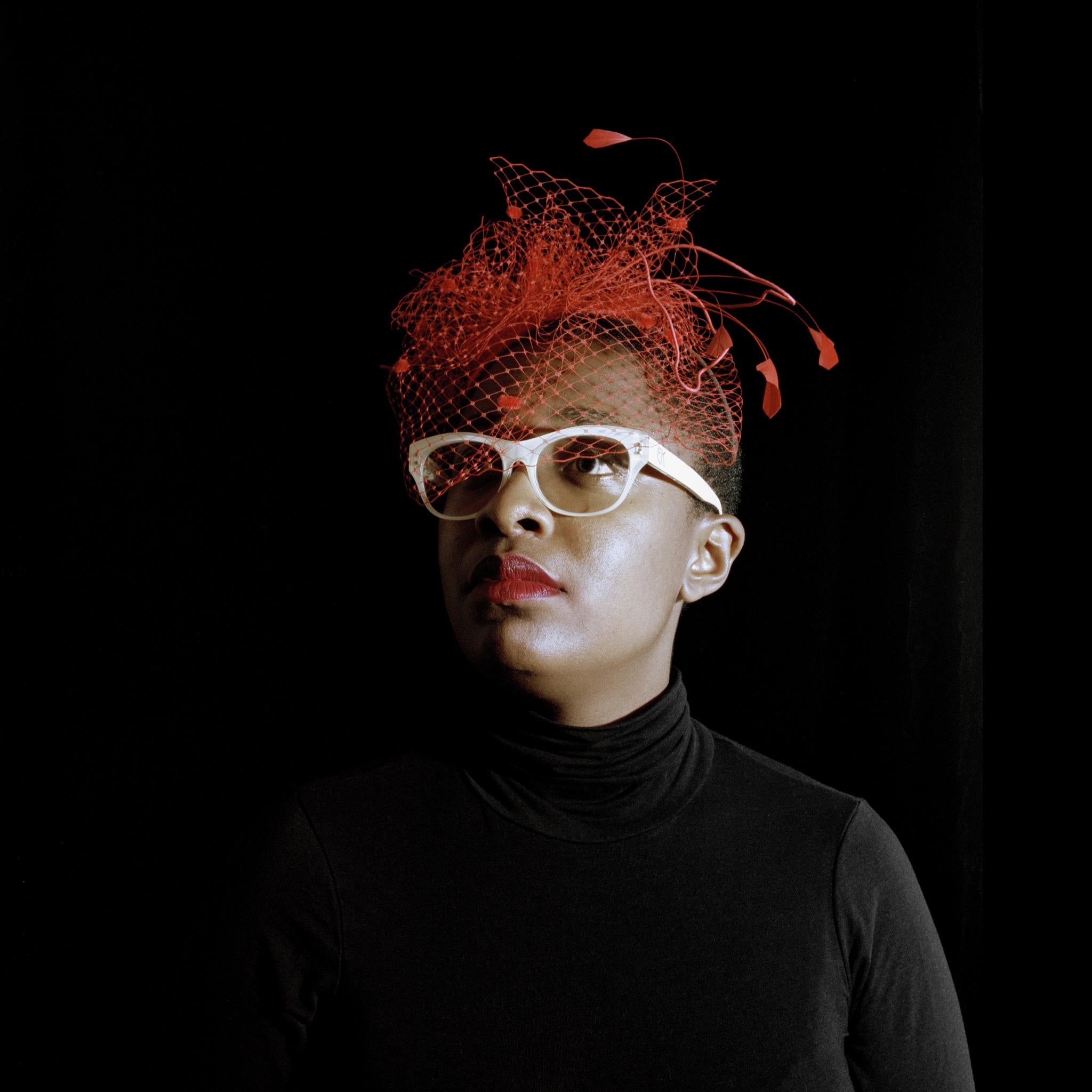
The bespectacled, always stylish and sometimes theatrical Cécile Mclorin Salvant is a jazz phenom with a voice that we guarantee will subdue you. The Grammy-nominated singer has a clear intention to bring jazz back to the forefront of the minds of young Black people in the US. “Jazz really honors the history of Black geniuses in America in such a beautiful way,” she tells ESSENCE. As she celebrates the release of her sophomore album, For One to Love, the Miami-bred singer spoke with ESSENCE about making the genre more accessible to the youth, her personal journey to jazz and identity.
You’ve got this really beautiful multinational background. How did it influence you?
My dad was born in Haiti and my mom was born in Tunisia. She is the daughter of a white French woman and a black, half-Guadeloupian half-American man. My mom traveled the world a lot. She went through Africa, South America, and the Caribbean. She just got to experience a lot of different cultures and that came through my childhood. I was really lucky to have a secondhand account of all this traveling, and really have this curiosity and openness for all these cultures and the folk element of all these different cultures.
You discovered jazz once you moved to France.
I was lucky enough to grow up in a house where we listened to all kinds of music. We listened to Haitian, hip hop, soul, classical jazz, gospel and Cuban music, to name a few. When you have access to that as a child, it just opens up your world. I do remember listening to pop and hip-hop—the music of my generation, which I love it—but I think jazz was just a part of it. I didn’t realize that jazz was an option for a career until I moved to France [for school]. That, to me, is a travesty because jazz is America’s music; it’s America’s art form, it’s Black music. Jazz is part of the reason why we were elevated above the disgusting conditions that people were in. Jazz was a way of rising above and showing that not only were we smart intellectual beings, but artists and geniuses that needed respect. Jazz brought that in a palpable way for people. Most of the people that I learned and experienced Jazz with have been with foreign White people, mostly from France. Excluding my family.
For someone who needs a point of entry into jazz, what should they start with?
You can go the route of checking out Robert Glasper’s earlier work or you can go the route of listening to Erroll Garner. Or even listening to a vocalist could be the easiest thing because it eases you in. Jazz sometimes can be really complicated and inaccessible to people because they don’t know what to start with. You can start with something that you love but if you start with something that you hate then it’s like, ‘You know what I hate jazz.’ It took me a lot of time to catch on to Jazz too.
Tell us more about your recent release, For One to Love.
There are five original compositions of mine also songs from musicals. There’s a song on the album that was originally composed by Blanche Calloway, who is Cab Calloway’s big sister. She was a huge influence on him. It’s a mix of the different things that we’ve been playing over the last couple of years.
Describe your musical style?
It’s jazz, it’s blues, we do some folk elements in there, and we do musicals. I like to sort of question different things about the way we live and about the things we think are acceptable without being too blatant about it. It’s just music that you can sit and listen to and chill and cook to, but also dance and rock out to.
Cecile Mclorin Salvant’s latest album For One to Love is out now.
This interview has been condensed and edited.





